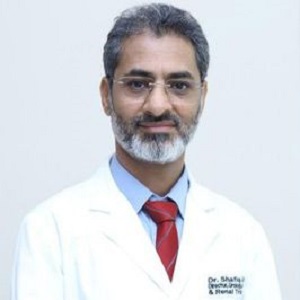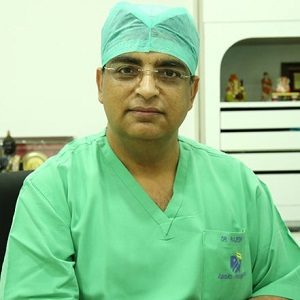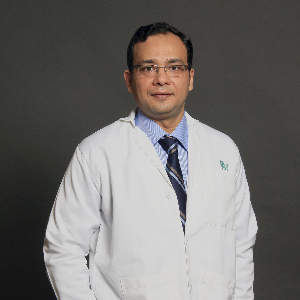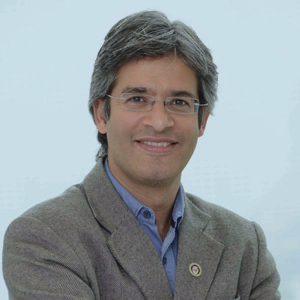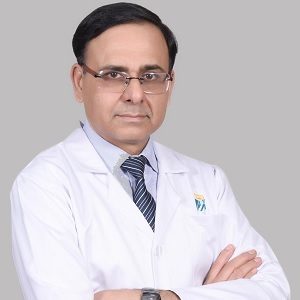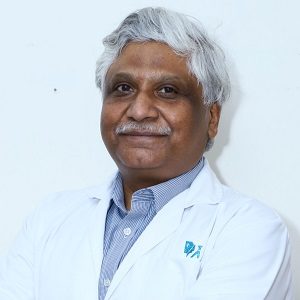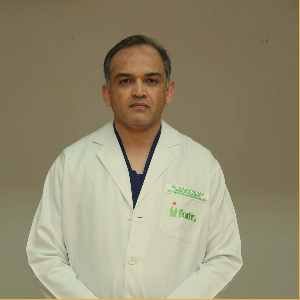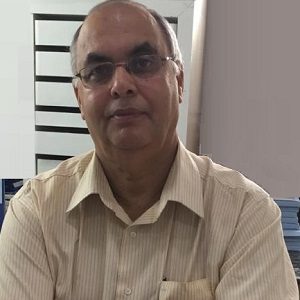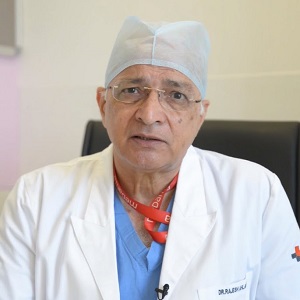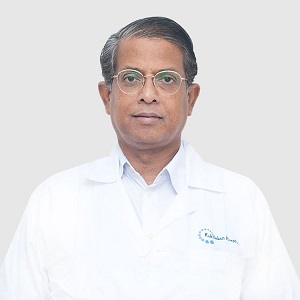Best Doctors in India for Vasectomy Reversal
- Director – Urology, Andrology & Renal Transplants
- 16+ years
Profile Highlights:
Profile Snapshot of Dr. Shafiq Ahmed
- With over 16 years of experience, Dr. Shafiq Ahmed is a highly skilled urologist and robotic surgeon.
- He has previously worked at some of the best hospitals in India and was instrumental in establishing Renal Transplant Programmes in some of the top hospitals within Delhi-NCR.
- Dr. Ahmed also holds US credentials as a robotic uro-oncologist.
- He has authored numerous book chapters and articles in medical journals on urological diseases.
- As one of the leading urologists, robotic surgeons, and renal transplant surgeons, Dr. Ahmed has trained many upcoming doctors in his field.
- He has also been a prominent speaker at various medical conferences.
- Robotic Urologist, New Delhi, India
- Over 27 years’ experience
Profile Highlights:
- Dr. Rajesh Taneja is one of the best Urologists in India, having experience of more than 27 years in the specialization. He is practicing at Apollo Hospitals, New Delhi as a senior consultant.
- Dr. Taneja specializes in surgeries to correct Congenital anomalies of urinary organs; Phimosis, PUJ Obstruction, Megaureter, Hydronephrosis, Vesicoureteric reflux (VUR), Hypospadias, Posterior Urethral Valves (PUV), Ectopia vesicae, and others.
- He is formally trained in the Robotic Surgical system and is one of the few urologists performing Robotic urological surgeries in India.
- Dr. Taneja has expertise in the Holmium Laser Enucleation of prostate technique.
- He has written numerous papers in national and international scientific publications.
- Dr. Rajesh Taneja also authored a book titled ‘Interstitial Cystitis’.
- Urologist, New Delhi, India
- Over 23 years’ experience
Profile Highlights:
- One of the outstanding doctors in the field of Urology, Dr. Anshuman Agarwal has spent 23+ years perfecting Robotic surgery and Laparoscopic surgery for urological cancer in India.
- He is an expert in minimal access surgery which includes Holmium laser surgery for Prostate (HOLEP) and PCNL, and RIRS for stones.
- Dr. Anshuman Agarwal has been a Senior Consultant in Fortis Hospital, RG Stone Hospital, and Rajiv Gandhi Cancer Institute and is currently functioning as a Senior consultant Urologist with Indraprastha Apollo Hospitals, New Delhi which is a state-of-the-art urology facility.
- Dr. Anshuman Agarwal has performed over 200 robotic surgeries for Prostate Cancer, Kidney, and Bladder and is known as one of the most renowned urologists in New Delhi.
- Uro Oncologist, New Delhi, India
- Over 20 years’ experience
Profile Highlights:
- Dr. Gagan Gautam is considered among the best Uro Oncology surgeons of the country and has performed more than 700 surgeries related to kidney, prostate and urinary bladder cancer.
- He has worked at the leading cancer centers of the world and also trained at some of the best cancer hospitals.
- Dr. Gautam is renowned for using robotic procedures during uro cancer surgeries and is among the very few doctors in India who are highly skilled in Robotic uro surgery.
- Urologist, New Delhi, India
- Over 30 years’ experience
Profile Highlights:
- Dr. Vipin Arora is a well-known Urologist in Delhi who has been practicing for more than 30 years with success.
- Currently, he is working as a senior consultant for Urology & Andrology at Apollo Hospital, New Delhi.
- Dr. Arora specializes in prostate diseases, Uro-Oncological surgeries, and laparoscopy procedures. He is the frontrunner in Robotically- assisted laparoscopic radical prostatectomy, Urologic oncology.
- Dr. Arora pioneered the Robotic Prostate Surgery technique in India.
- He also offers CAPD, Extracorporeal shock wave lithotripsy, Flexible Ureteroscopy, Laser treatment, Polycystic Kidneys treatment, Cadaver and Live Renal Transplant, GU prosthetics, Stress Incontinence surgery TVT TOT, and TURP.
- Pediatric Urologist, New Delhi, India
- Over 25 years’ experience
Profile Highlights:
- Dr. Sujit Chowdhary is one of the best Pediatric urologists in Delhi, India.
- He has been practicing for over 25 years and is currently working as a senior consultant for Pediatric Urology & Director of the Apollo Institute of Pediatric Sciences, New Delhi.
- Dr. Sujit Chowdhary also won many awards for his contributions to the field.
- The doctor and his team established a premier robotic pediatric urology program in the Asia-Pacific.
- His unit takes care of newborn surgeries, robotic surgery, minimally invasive surgery, and many other subspecialties of the field.
- Dr. Sujit Chowdhary’s published peer reviews and citations complemented his experiences. He has written about 90 peer reviews and 350 citations.
- Urologist, Gurugram, India
- Over 20 years’ experience
Profile Highlights:
- Dr. Rajiv Yadav is a reputed urologist in India with great experience in Prostate, Kidney & Urinary bladder disorders.
- His clinical focus is on Robot-assisted Laparoscopic Surgery for Prostate Cancer, Kidney Cancer, and Urinary bladder cancers.
- He completed his training at the most prestigious institutes including AIIMS, Delhi & Weill Cornell Medical & New York-Presbyterian Hospital, USA.
- Urologist, New Delhi, India
- Over 42 years’ experience
Profile Highlights:
- Dr. Suresh Kuamr Rawat is one of the best Urologists in India, having a grand experience of 42 years in the field.
- His services extend into prostrate laparoscopy, TUIP, TURP, minimally invasive surgery, etc.
- Dr. Suresh Rawat is practicing as a consultant with the Department of Urology at Apollo Hospitals, New Delhi.
- Dr. Rawat specializes in neuromuscular disorders, Andrology, and complex urological surgeries. He is an expert doctor for Endourology, Uro oncology, Reconstructive Urology, Female Urology, and Pediatric Urological treatment.
- Urologist and Renal Transplant Surgeon, Gurugram, India
- Over 40 years’ experience
Profile Highlights:
- Dr. Rajesh Ahlawat is one of India’s top kidney transplant surgeons, who has worked in leading Institutions in North India and has established successful Minimally Invasive Urology programs including Robotic Surgery and Kidney Transplant services with excellent outcomes comparable to the best in the world.
- Throughout his career, Dr. Ahlawat has initiated and established four successful Urology and Renal Transplant programs in India
- Urologist and Kidney Transplant Surgeon, Mumbai, India
- Over 30 years’ experience
Profile Highlights:
- With over 30 years of experience, Dr. Bejoy Abraham has worked as a consultant at premier institutes such as CMC, Vellore, and Addenbrookes Hospital, Cambridge, UK.
- He has vast experience in kidney transplant, management of kidney stones, cancer conditions of the bladder, reconstructive urology, erectile dysfunction as well as Pediatric urology.
Best Hospitals in India for Vasectomy Reversal
Indraprastha Apollo Hospital, New Delhi
- City: New Delhi, India
Hospital Highlights:
- Indraprastha Apollo Hospital is a 700-bedded multispecialty hospital in the heart of the capital of India. It is a part of Apollo Hospital group, one of India’s most reputed healthcare chains. Indraprastha Apollo Hospital has been accredited by Joint Commission International, making it the first internationally accredited hospital in the country in 2005.
- There are 52 specialties in the hospital with one of the best cardiology centers in the country. The hospital is also equipped with State of the art infrastructure facilities with the largest Sleep Lab in Asia and the largest number of ICU bed facilities in India.
- The hospital also has one of the largest dialysis units in India along with a dedicated Bone Marrow Transplant unit.
- The latest and highly advanced technologies that are installed in the hospital include Da Vinci Robotic Surgery System, PET-MR, PET-CT, Cobalt-based HDR Brachytherapy, Brain Lab Navigation System, Tilting MRI, Portable CT scanner, 3 Tesla MRI, 128 Slice CT scanner, DSA Lab, Endosonography, Hyperbaric Chamber and Fibro scan.
Fortis Memorial Research Institute, Gurugram
- City: Gurugram, India
Hospital Highlights:
- Fortis Memorial Research Institute is a multi-super-specialty, quaternary care hospital with 1000 beds. The hospital comprises reputed clinicians, and international faculty and is also equipped with cutting-edge technology. The hospital is a part of Fortis Healthcare Limited, a reputed chain of private hospitals in India.
- It is a NABH-accredited hospital that is spread across 11 acres of land and has a capacity of 1000 beds. The hospital has 55 specialties and is one of the premier health care centers in the Asia Pacific region popularly known as “the Mecca of Healthcare”.
- The hospital has 260 diagnostic centers and is also equipped with the latest and advanced techniques that include 3 Telsa which is the world’s first Digital MRI technology. The hospital also has world-class Radiation Therapy techniques which have been developed by leading technology experts from Elekta and Brain Lab.
Apollo Hospital, Chennai
- City: Chennai, India
Hospital Highlights:
- Apollo Hospitals, Chennai, is one of the best hospitals for heart care in India. Over the years, Apollo has expanded all over India, as a healthcare chain.
- India’s first ‘Only Pancreas’ transplant was performed in Apollo Hospital. The hospital is known for successfully performing Asia’s first en-bloc combined heart and liver transplant, and over the years, it has attained a remarkable achievement in the global healthcare space. Around 3-4 organ transplants are performed in the hospital per day.
- Equipped with over 500 beds, this hospital in Chennai was established in 1983 and since then has been among the most preferred hospital for patients from all over the world.
- The hospital holds accreditation of the NABH and JCI and is the first hospital in India to be ISO 9001 and ISO 14001 certified. It is also the first South Indian Hospital to receive subsequent reaccreditation from the JCI USA 4 times.
Medanta-The Medicity, Gurgaon
- City: Gurugram, India
Hospital Highlights:
- One of India’s best and largest multi-specialty hospitals, Medanta was built with the aim to bring India to the highest standards of medical care. The hospital has been providing the best medical services to its patients, since its inception, with care, commitment, and compassion.
- Equipped with 1250 beds, the hospital was founded by Dr. Naresh Trehan in the year 2009 with an aim to provide the best medical care at affordable costs. The hospital is spread across 43 acres and includes 45 operation theatres and 350 beds dedicated solely to ICU. The hospital includes over 800 doctors, and more than 22 specialty departments and has a dedicated floor for individual specialty in order to offer the best services under one roof.
- The hospital is considered one of the premier institutes in India for Cardiac Care and includes staffs and members of high caliber. The hospital has 6 distinct centers of excellence.
Max Super Specialty Hospital, New Delhi
- City: New Delhi, India
Hospital Highlights:
- One of the well-regarded providers in India committed to the highest standards of clinical excellence and patient care, Max Super Specialty Hospital is a part of Max Healthcare, which is the second-largest healthcare chain in India. Regarded as one of the most well-regarded healthcare providers in the country, Max Super Specialty Hospital is committed to the highest standards of clinical excellence as well as patient care. The hospital is also equipped with the latest technology as well as cutting-edge research. The hospital is known to deliver and ensure the highest level of patient care.
- The hospital has more than 500 beds and offers treatment for over 35 specialties. The hospital also holds the credit of having installed the first Brain Suite in Asia. This is a highly advanced Neurosurgical machine that allows MRI to be taken while surgery is ongoing.
- Other advanced and latest technologies are also installed in the hospital such as the 1.5 Tesla MRI machine, 64 Slice CT Angiography, 4D ECHO, LINAC, and 3.5T MRI machine.
Artemis Hospital, Gurugram
- City: Gurugram, India
Hospital Highlights:
- One of the most well-known hospitals in the Delhi NCR, Artemis Hospital is the first hospital in Gurugram to get accredited by the Joint Commission International.
- With more than 40 specialties, the hospital has been designed to be one of the most technically advanced hospitals in the country, with the best medical and surgical health care. The hospital has eleven special and dedicated centers, for Heart, Cancer, Neurosciences, etc.
- The latest technologies in the hospital include Endovascular Hybrid Operating Suite and Flat panel Cath Labs for the cardiovascular department, 3 Tesla MRI, 16 slice PET CT, 64 Slice Cardiac CT Scan, HDR Brachytherapy, and highly advanced Image Guided Radiation Therapy techniques (LINAC) are installed in the hospital.
- The hospital has won several awards as well, since its inception.
BLK Max Super Specialty Hospital, New Delhi
- City: New Delhi, India
Hospital Highlights:
- Equipped with 650 beds, BLK Superspecialty Hospital is the largest stand-alone private sector hospital in Delhi.
- With over 1500 healthcare providers and 150 globally renowned super specialists, the hospital is one of Asia’s largest Bone Marrow Transplant Centres. The hospital is known for having some of the best cancer doctors in the country.
- The hospital is NABH and NABL accredited and was inaugurated by the first Prime Minister of India. Pt. Jawahar Lal Nehru.
Kokilaben Dhirubhai Ambani Hospital, Mumbai
- City: Mumbai, India
Hospital Highlights:
- Kokilaben Dhirubhai Ambani Hospital, Named after the wife of Indian industrialist Dhirubhai Ambani, the founder of Reliance Industries, this is one of the top hospitals in Mumbai. This 750-bed multi-specialty hospital became operational in 2009. Known as one of India’s most advanced tertiary care facilities, the hospital is designed to raise India’s global standing as a healthcare hub, with an emphasis on excellence in clinical services.
- Kokilaben Dhirubhai Ambani Hospital uses Protocol and Care Pathway based treatment models to ensure the best outcomes for patients.
- The hospital represents a confluence of top-notch talent, cutting-edge technology, state-of-the-art infrastructure, and, most importantly commitment.
- The hospital also holds the accreditation of the NABH, NABL, CAP, and JCI.
- The hospital has been recognized as the No. 1 Multispecialty Hospital in Mumbai and the West Zone for the fifth year in a row in 2020 by The Week.
Rela Hospital, Chennai
- City: Chennai, India
Hospital Highlights:
- RIMC is a multi-specialty hospital in a sprawling area of 36 acres located in Chromepet, Chennai, Tamil Nadu, India.
- The facility has 450 beds including 130 critical care beds, 9 operating rooms, modern reference laboratories and radiology services, and is conveniently located near road, rail and air transportation.
- RIMC is led and managed by world-renowned physicians committed to healthcare.
- RIMC offers the broadest range of clinical care, education, and research. The hospital offers state-of-the-art technology and modern treatment facilities designed to provide health care at an affordable cost.
- Rela Institute is driven by patient needs, comfort and confidence.
CARE Hospitals, Hyderabad
- City: Hyderabad, India
Hospital Highlights:
- CARE Hospitals were established in the year 2000, by CARE Group.
- The multispecialty hospital has 435 beds, including 120 critical care beds, with an annual inflow of 180000 outpatients and 16,000 in-patients.
- The hospital provides specialty medical services in Cardiology, Cardiothoracic Surgery, Pediatric Cardiology, Pediatric Cardiothoracic Surgery, Neurology, Neurosurgery, Nephrology, and Urology.
- The hospital has the first dual source, 128 slice CT scanner (for high precision cardiac imaging) – the first of its kind in south India.
- The hospital offers a wide range of accommodation facilities for the convenience of its varied patient base, ranging from general wards to super deluxe rooms.
Vasectomy Reversal
Vasectomy reversal is a surgical procedure to undo a vasectomy by reconnecting the male reproductive tract. It reconnects the tubes that carry sperm (vas deferens). Once this procedure is successful, sperms are again present in the semen and you can get your partner pregnant.
Depending on the type of procedure that is performed, pregnancy rates after vasectomy can range from 30 percent to over 90 percent. Several factors can affect how successful a reversal is, in achieving pregnancy. This can include time since the vasectomy, age of the partner, the experience of the surgeon and whether or not the person has had any fertility issues before the vasectomy.
Purpose
Men can choose to go for a vasectomy reversal for multiple reasons which sometimes includes loss of a child, a change of heart or remarriage. Sometimes few men also go for a vasectomy reversal for treating testicular pain which can be linked to a vasectomy.
Preparation
Doctors can perform vasectomy reversals at a surgery center or at a hospital. It is generally an outpatient procedure with no need for an overnight hospital stay. Before the reversal, your doctor will:
- Take a medical history and do a physical exam – It is quite important to ensure that there are no other health problems which may lead to any complications during or after the surgery.
- Confirm that healthy sperm can be produced – Generally, evidence of having fathered a child before can be sufficient, but if there is any uncertainty, sometimes additional testing can be required.
- Review the surgical history – It is also important for your surgeon to know if you had any previous surgeries other than vasectomy or any previous injuries which can interfere with this procedure.
- Consider blood tests – Though this is not always necessary, it can be recommended for any man who has issues of sexual function or an abnormal sexual function.
During the procedure, generally, general anesthesia is used. It is best if you can arrange for someone to drive you home after the surgery. The surgery should generally take around two to four hours. If general anesthesia is used, you might need some additional time for your recovery. Ask your doctor when you will be able to go home after the surgery.
Procedure
During the procedure, your doctor will first make an incision on your scrotum. This will be exposing the vas deferens i.e. the tube that carries the sperm and releases it from the surrounding tissues.
Next, the doctor will be cutting out the vas deferens in order to examining the fluid inside. When sperms are present in the fluid, the end of the vas deferens is connected so that the passageway for the sperm can be re-established.
However, if the fluid doesn’t contain sperm, then the sperm flow may be blocked by scar tissue. In this case, your doctor has to attach the vas deferens directly to the small organ at the back of each testicle holding sperm.
Robot-assisted surgery has also been used for vasectomy reversal, though it is usually required only in a few selected cases.
After the procedure
Immediately after the procedure, your doctor will cover your incisions with bandages. You’ll put on tightfitting undergarments such as an athletic supporter and also need to apply ice for 24 to 48 hours for reducing the swelling.
You might feel sore for several days. If bandages are placed over the incisions after the surgery, you should ask your doctor, when you will be able to take them off.
After you return home, try to limit activities that might cause the testicles to move around too much. You will be experiencing some pain and swelling once the anesthetic wears off. For most men, the pain is not severe and it should get better after some weeks.
Your doctor might give you the following instructions as well:
- Wear an athletic supporter at all times for some weeks after the procedure, except when you are showering. After that you need to continue to wear one while exercising.
- For the first two days after your surgery, avoid any activities that can get the surgery site wet, such as showering, bathing or swimming.
- If you work a desk job, you should be able to return to work just a few days after surgery. However, if your job involves physical labor or your job requires much walking or driving, discuss with your doctor about when you should go back to work.
- Limit any kind of activity such as jogging, sports or biking that may pull on the testicles or scrotum for a minimum of six to eight weeks after surgery.
- Refrain from having sexual intercourse or ejaculating until your doctor says that it is okay to do so. Generally, men need to refrain from ejaculating for two to three weeks after the surgery.
Results
Some time after the procedure, your doctor will examine your semen with the help of a microscope to see if the operation was a success. He/she may want to check your semen periodically. Unless you get your partner pregnant, the only other way to determine if the vasectomy reversal process was a success is to keep checking.
When a vasectomy reversal is a success, the sperm should reappear in the semen within a few weeks. However, in some cases, it may take more than a year. The likelihood of pregnancy can depend on multiple factors, such as the number of quality of sperm present as well as the age of the female pregnancy.
If there is an underlying issue with the testicle which the doctor cannot recognize during the surgery, then there is a chance that the vasectomy reversal might fail. Some men also attempt a second vasectomy reversal surgery if the first one fails to work.
If the reversal fails, it is also possible to father a child through in vitro fertilization with the use of frozen sperm.
Risks
Though it is safe, there are few risks to vasectomy reversal surgery. Sometimes full fertility may not resume. Other risks include chronic pain as well as infection. Few other risks include:
- hematoma
- inadequate sperm count
- bruising and swelling
- bleeding
- testicular atrophy, although very rare

